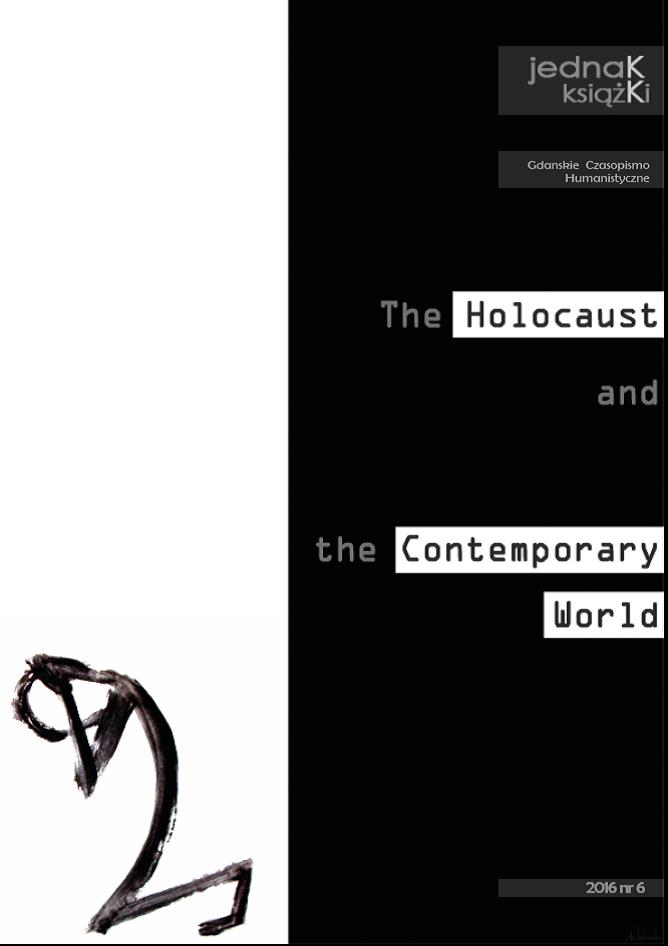Are Trips to Auschwitz the Panacea for a History Sick Society? A Case Study of Holocaust Teaching: the Italian Memorial Trains to Auschwitz
Słowa kluczowe:
Holocaust Education, Italian Memorial Trains, Use Abuse AuschwitzAbstrakt
My paper will focus on the Italian memorial trains to Auschwitz, which have become a very popular phenomenon, still unparalleled in Europe. Namely, I will argue that they are an example of deterioration of Holocaust teaching by analyzing the three key following aspects:
1) Is the primary goal of this initiative teaching history or promoting moral education? Believing that a site visit is enough to generate a meaningful civilizing impact on the visitors means trivializing Auschwitz. On the one hand, the preparatory work for a trip there cannot include the teaching of the Holocaust in its full complexity. On the other hand, any content selection will obviously influence the students’ historical perception.
2) Both pedagogy and methodology would need more accuracy because most teachers taking part in these projects tend to have a passive attitude arising from their choice to leave their educational responsibility in the hands of the organizers, therefore renouncing to coordinate by themselves the learning process of their students.
3) The use of an unsuitable language not only results from a lack of precision in defining the historical facts (mixing of political deportation, forced labour and extermination of the Jews) but also leads to a universally moralizing effect of the Holocaust. In particular, the use of a too general vocabulary (including terms like: human beings, victims, innocent people) risks overlooking and minimizing the specificity of the genocide. Such a language prevents students from understanding that the Holocaust victims were the Jews and that they were murdered just because they were born Jews.
Given the great success of the memorial trains initiative and its strong connection with the teaching of history, it is essential to consider how teachers respond to the major challenge they are faced with: combining good history teaching with the moral lesson of Auschwitz.
Downloads
Bibliografia
Bauer Yehuda. 2010. “Reflections About Text and Context”, Seventh International Conference on Holocaust Education. Yad Vashem, Jerusalem. Online: http://www.yadvashem.org/yv/en/education/conference/2010/pdf/bauer.pdf. Accessed December 1, 2014.
Baruch Stier Oren. 2003. Committed to Memory. Cultural Mediations of the Holocaust. Page 25. University of Massachusetts Press.
Cywiński Piotr. 2014. “Auschwitz Memorial Report.” Online: http://auschwitz.org/en/museum/news/revision-of-the-way-we-see-the-world-andourselves auschwitz-memorial-report-2014-,1132.html. Accessed February 1, 2015.
European pack for visiting Auschwitz-Birkenau Memorial and Museum. Online at: http://www.coe.int/t/dg4/education/remembrance/archives/Source/Publications_pdf/ European_Pack_en.pdf).
Fortini Walter. 2011. “Treno della memoria. Cinquemila studenti in sei anni, dal 2002 ad oggi” [The Memorial Train. Five thousand students in six years, from 2002 until today]. Journal Toscana Notizie, January 19, 2011. Online: http://www.toscana-notizie.it/-/treno-dellamemoria-cinquemila-studenti-in-sei-anni-dal-2002-ad-oggi. Accessed January 1, 2015.
Gordon R.S.C. 2012. The Holocaust in Italian Culture. 1944-2010. Stanford, California: Stanford University Press.
Luppi Marzia. 2015. “Da Fossoli ad Auschwitz, l’Espresso con il treno della memoria” [From Fossoli to Auschwitz, the express train by the memorial train]. Interview by Lara Crinò. Journal La Repubblica. Online: http://espresso.repubblica.it/visioni/cultura/ 2015/01/26/news/da-fossoli-a-auschwitz-l-espresso-con-il-treno-della-memoria1.196389. Accessed February 1, 2015.
Pasquini Lorena. 2009. “La memoria al futuro sul treno per Auschwitz” [The future of the memory on the train to Auschwitz]. Interview by Maria R. Calderoni, Journal Liberazione. Online: http://spogli.blogspot.it/2009/01/repubblica-24.html. Accessed January 1, 2015.
Welzer Harald, 2009. “Who is a Perpetrator? The Changing Construction and Interpretation over Time”. Paper for the International Conference named: Perpetrator Research in a Global Context, Bundeszentrale für politische Bildung. Berlin. Online: file:///C:/Users/utente/Downloads/U3RQB4[1]_welzer_en.pdf. Accessed December 1, 2014.
Wieviorka Annette. 2005. Auschwitz, 60 ans après. Paris: Robert Laffont.
Young James E. 2001. [Introduction] Weiss Ann: The Last Album: Eyes from the Ashes of Auschwitz-Birkenau, 16-18. New York: W.W. Norton & Company.

 Uniwersyteckie Czasopisma Naukowe
Uniwersyteckie Czasopisma Naukowe




